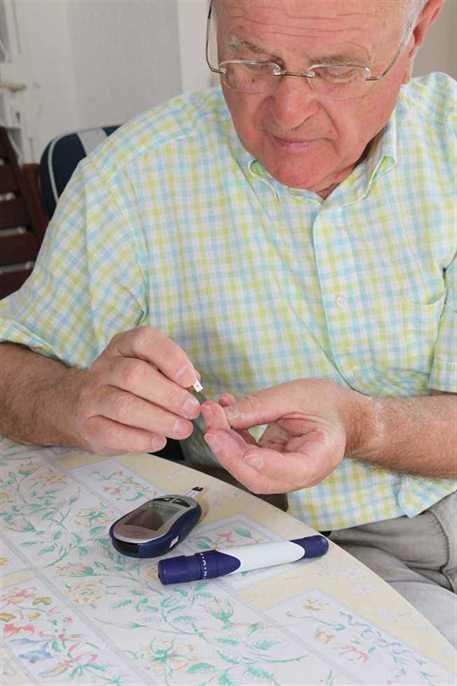
Across the globe, millions of people suffer from diabetes. According to Diabetes Canada, 10% of Canadians live with a diagnosis of this condition (types 1 and 2). Many of those diagnosed are seniors. The consequences of diabetes can be life-changing: they can increase one’s risk of strokes, vision problems, and dementia.
This disease affects the body’s ability to produce and use insulin, a hormone that regulates blood sugar. Caring for an older adult with diabetes can be challenging. Take note of the following tips to help your loved one manage their condition:
Check In Often
In the past, you may have paid frequent visits to your family member to monitor how they were doing. But now, the COVID-19 restrictions may prevent you from doing so.
Daily phone calls will help your loved one remember to take their medications and test their blood levels. You can ask what they’ve eaten that day to keep an eye on their diet. During the call, ask them about symptoms that may result from diabetes. These include blurry vision, nerve damage, and fatigue. Asking these questions helps you monitor their disease and determine if it’s getting worse. If your loved one reports any symptoms like these, you’ll know that it’s time to schedule another doctor’s appointment.
Help Them Plan Meals
One of the trickiest parts of managing diabetes is planning healthy meals. Your loved one might be used to eating a certain way, and if they don’t plan ahead, they may go back to those old habits.
People with diabetes have to be careful about what they eat. Increases in their blood sugar levels can have serious ramifications for their health. A balanced diet that’s full of vegetables, lean protein, and vitamins will set them up for success.
You can organize a weekly meal plan together to keep their diet under control. Delivering groceries will help them stay on track with healthy eating.
Organize Their Medication
Anyone who’s taken medicine before knows that it’s hard to remember when to take your pills. That becomes even more challenging when you’ve got multiple medications to take, as is the case with diabetes. To help with this, a weekly or monthly pill box will do the trick.
These dividers separate each day into time blocks when medications must be taken: in the morning, afternoon, and/or at night. Having a way to visualize a pill schedule will help your senior loved one remember to take them.
Go For a Walk Together
A great way to help your family member stay active while maintaining physical distancing is to get outside. Light exercise will benefit their mental health and improve blood glucose levels. However, not all seniors are mobile enough for a walk. Try to meet your loved one where they’re at, and find exercises that work for their body.
Arrange Home Care Services
You don’t need to do everything on your own—it’s okay to arrange for additional help. Home care services can relieve a great deal of stress in your life. You can trust that your loved one will be looked after with the care of a professional.
A home care assistant can do things like prepare meals, help with errands, and assist your loved one with medication and testing. Partners for Home offers home care services in Winnipeg. Contact us today to learn more about our services.

